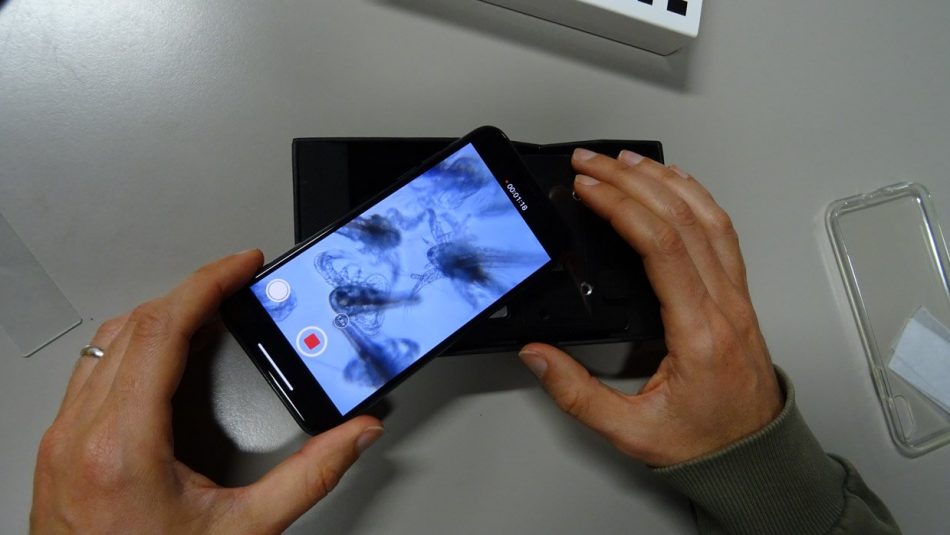Smartphones changed photography forever by making the camera a staple on every new smartphone produced. Now a new kickstarter campaign is planning to revolutionize the microscope industry by turning any smartphone camera into a portable microscope.
The new product named DIPLE is a small magnifying glass that attaches to your smartphone’s camera. It can easily fit anywhere and promises to augment your smartphone camera zoom up to 1,000 times. In other words, this means that your smartphone will be able to look into things as small as red blood cells.
This new product will make microscopes more accessible for anyone interested in the study of microscopic organisms or just a simple hobbyist. But the diminutive microscope is way more than just a small gadget for your phone camera. The reality is that in a lot of circumstances scientists can be in remote areas where the access to powerful microscopes is limited. With DIPLE, a scientist can determine water quality or analyze blood samples for disease diagnosis anywhere.
As of now, the funding campaign has more than 600 backers and $67,000 of funding – more than the company expected to obtain. With the success of these gadgets, science can quickly become more accessible in any remote corner.











